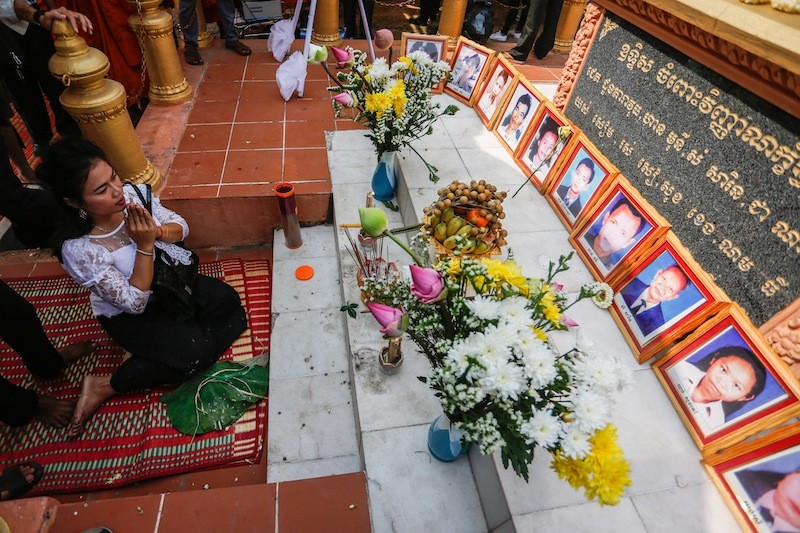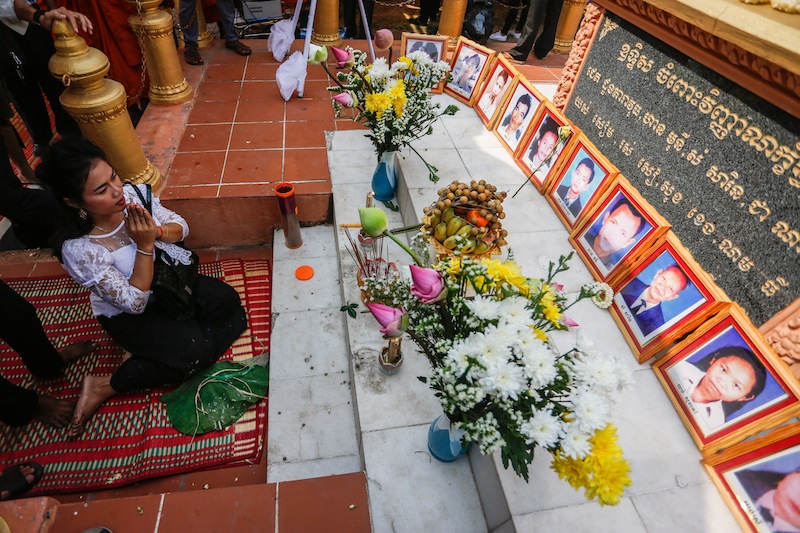Unless there are fundamental changes to the dynamics of politics in Cambodia—with the government suppressing dissent and the opposition often relying on racially charged attacks—disenchantment following next year’s election is likely to lead to violence, a think tank warned in a political analysis released on Tuesday.
Noting that the government has largely returned to old tactics of oppression rather than aggressively pursuing the reform agenda promised after the 2013 national election, the Future Forum public policy think tank says the country’s fragile political climate could easily erupt if voters feel silenced.

“Unless risks are acknowledged, strategies recalibrated, and policy platforms established, the groundswell of public opinion—particularly among urban dwellers and the youth—could very likely mean another wave of protests, political upheaval and violence around the 2018 elections,” the analysis says.
“Almost inevitably, anger leads to violence, especially in a country like Cambodia, where the authorities have proven themselves willing to use force, both officially by security forces and unofficially,” it adds.
“Another risk is that the public and any protesters resort to violence. That is precisely why it is in the interests of the government not to keep the lid on the situation for too long, as pressure will eventually build to a dangerous level.”
Following the 2013 election, mass protests led by the CNRP remained peaceful for months. However, in January 2014, when military police moved to break up a protest by garment workers—whose campaign for higher wages was supported by the opposition—they were pelted with stones and responded by indiscriminately firing their rifles at demonstrators, killing at least five and injuring dozens.
The government quickly moved to suppress all protests, deploying men in civilian clothes with sticks and metal bars to clear out CNRP supporters from Phnom Penh’s Freedom Park. The opposition agreed to join parliament in a deal that was hurriedly hammered out in July 2014 after six lawmakers were imprisoned over a protest that turned violent.
Cham Bunthet, a political analyst and policy adviser to the Grassroots Democracy Party, said there was little hope that the government would change its ways, but the opposition could be doing much more to set the stage for a nonviolent post-election period.
He said the CNRP should focus on promoting popular policies rather than attacking the ruling party, and should present a road map for a peaceful transition of power if it wins next year’s election.
“Build trust with the government—this doesn’t mean working together. Make sure they are safe if they lose,” he said. “If [the CPP] remain fearful, they will fight to their last breath to hold onto their power and safety.”
In December, opposition leader Sam Rainsy said that after the CNRP wins the 2018 election “what will remain from Hun Sen’s CPP will just be a bunch of rebels who will be crushed by the legitimate government.”
Responding to criticism that his remarks suggested a continuation of Cambodia’s violent politics, he said that they did not represent the CNRP’s post-election plans.
“After the July 28, 2018 national elections, a smooth and peaceful transition remains my objective and, I would say, my obsession,” he wrote in a letter to The Cambodia Daily.
“There will be no political retributions and no witch-hunts whatsoever. The new and legitimate CNRP-led government will treat with dignity all CPP members or former members and will offer them real opportunities to participate in the achievement of a true, inclusive and equitable development for Cambodia.”
CPP spokesman Sok Eysan said on Tuesday that the government had done enough work since the last election to ensure that the next one did not result in the same sort of public anger.
“I think that next election will not be as severe as 2013,” he said. “Because both parties spent months negotiating to amend the election law…so just implementing that law will be enough to ensure stability around the upcoming election.”
“So I can confirm that power will be peacefully transferred,” he added. “I mean the transfer of power from the fifth mandate of government ruled by the CPP to the sixth mandate of CPP government.”
(Additional reporting by Kuch Naren)




